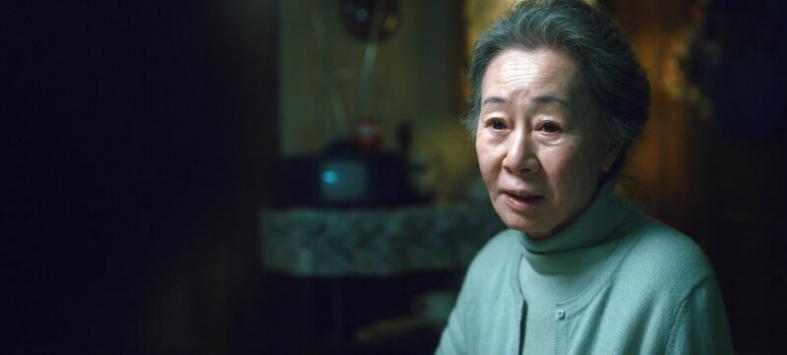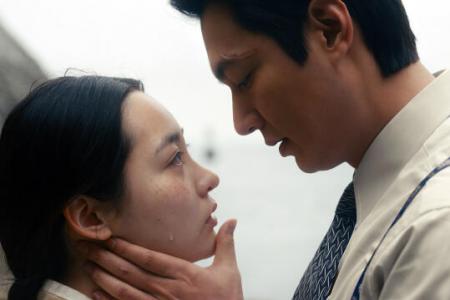Star-studded period drama Pachinko follows a Korean family in Japan
LOS ANGELES - The Apple TV+ series Pachinko might be the first Asian-centred, Hollywood-backed and trilingual prestige drama of the streaming age.
This four-generation saga of a family that moves from Korea to Japan, based on a New York Times best-selling historical novel, makes its debut on March 25.
Speaking at a press event in Los Angeles, creator Soo Hugh and the cast - which includes South Korean mega-stars Youn Yuh-jung and Lee Min-ho - say the story, scripted in Korean, Japanese and English, is a universal one despite its specificity.
Hugh, the Korean-American writer-producer behind the horror series The Terror (2018 to 2019) and science-fiction drama The Whispers (2015), adapted Pachinko's screenplay from Min Jin Lee's acclaimed 2017 novel, which spans the early 1900s to the 1980s and also travels to New York.
In 2018, Apple TV+ announced it would turn it into a big-budget drama with an international cast, and the hope is that it takes off globally just as Netflix's Korean-language phenomenon Squid Game did last year.
Yet the show arrives at an interesting moment for Asian representation in Hollywood - in the wake of Squid Game and hit romantic comedy Crazy Rich Asians (2018), but just weeks after an American reviewer said new Pixar animated film Turning Red was "limiting" in appeal because of its young Chinese heroine.
Hugh says that, thankfully, she never faced that sort of attitude with this project.
"I'm so grateful that Pachinko didn't run into that. We pitched this over three years ago and everyone leaned in, and I think it shows just how much things are changing - although definitely not fast enough."
There were no attempts to dilute the cultural specificity of the story, which spotlights the experiences of the Korean zainichi, who migrated to Japan following the latter's colonisation of Korea.
"At Apple, the show was very protected," Hugh says. "I think people knew that if we were going to reach an audience and tell this story right, you can't change what it is because you're trying to please everyone."

Youn - the film and television star who last year became the first Korean actress to win an Oscar, for the Korean-American drama Minari (2020) - says Pachinko touches on some painful chapters of Korean history following the Japanese colonisation of 1910.
"That is a part of our history whether we like it or not. It happened already," says the 74-year-old, who plays the older version of the main protagonist and matriarch, Sunja.
But history aside, this is a story about love, loss and familial devotion, she says. "I focused on the emotions and feelings of the characters who were just trying to survive and exist during that time. And my hope is that the audience will get that perspective."
Korean heart-throb Lee Min-ho plays Hansu, the enigmatic fish broker who becomes romantically entangled with a teenage Sunja, played by South Korean newcomer Minha Kim.

Speaking through an interpreter, Lee, 34, reveals the story made him think about the generations that come before and after each individual.
"I thought a lot about sacrifice," says the actor, whose role in the 2009 South Korean romantic drama Boys Over Flowers made him one of the biggest stars of the Korean wave, or hallyu, across Asia.
"Nowadays, we put our own happiness as a top priority, but Pachinko made me think about the reason I get to live the life I do now.
"I also thought a lot about what I can do for the next generation of my family," he adds.
But Lee says it is impossible to know if international audiences will connect with the series, with its mostly Asian cast and three languages.
The star, who is the biggest Korean actor on Instagram, where he has 28.7 million followers, says: "I think it's really very hard to predict whether a show will appeal to a big audience or whether it will be popular.
"But I think our story can speak to the global audience because we have universal values and everyone can relate to those."
Get The New Paper on your phone with the free TNP app. Download from the Apple App Store or Google Play Store now


